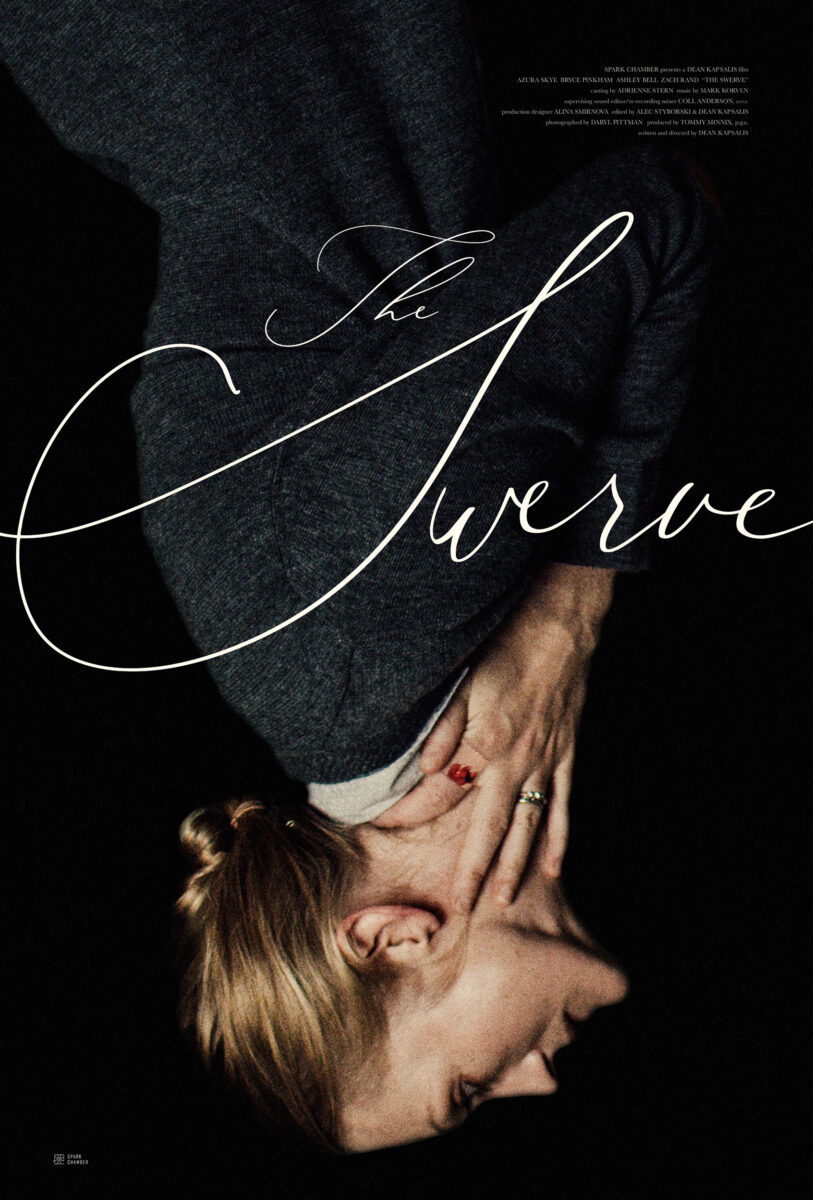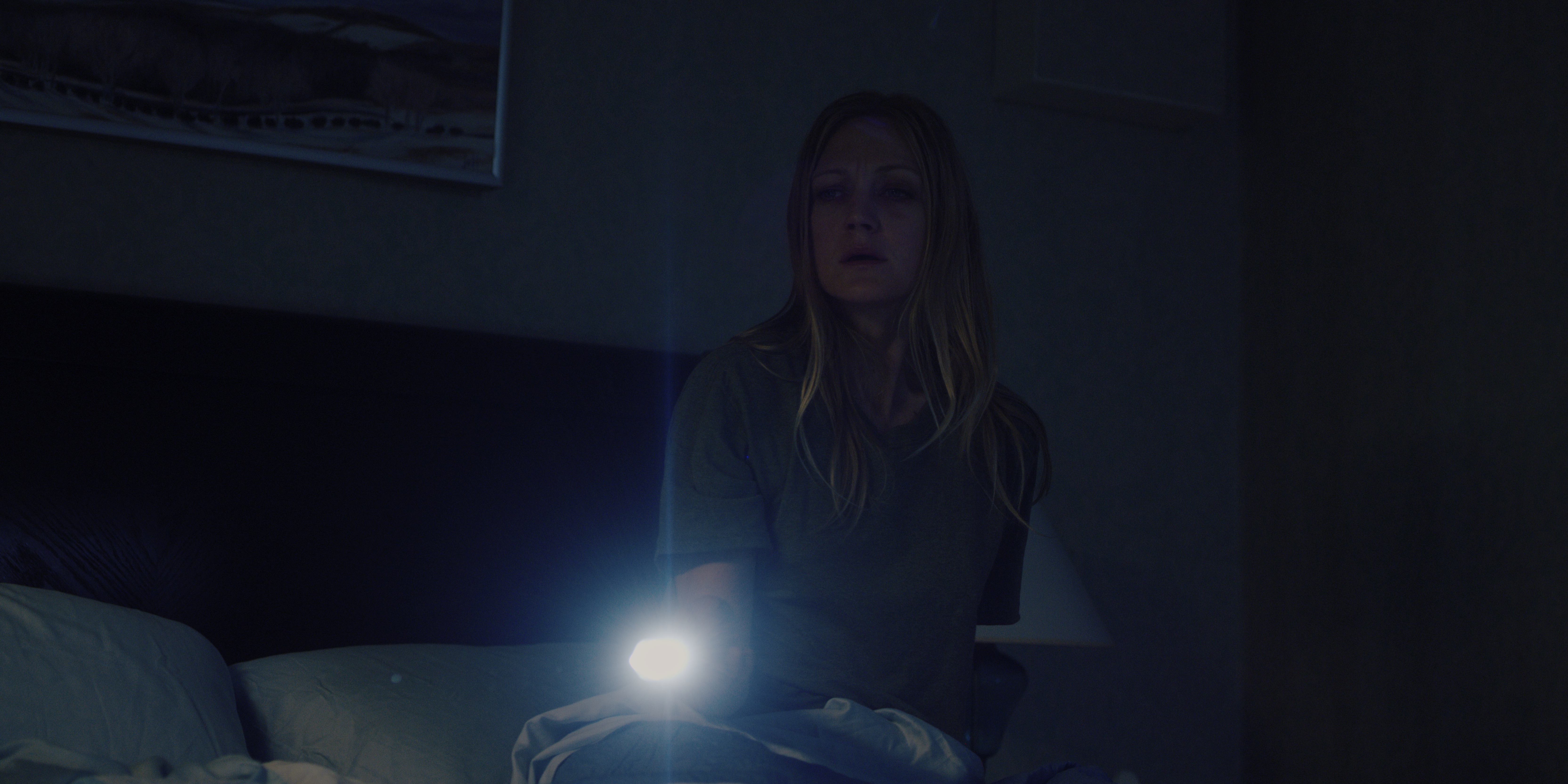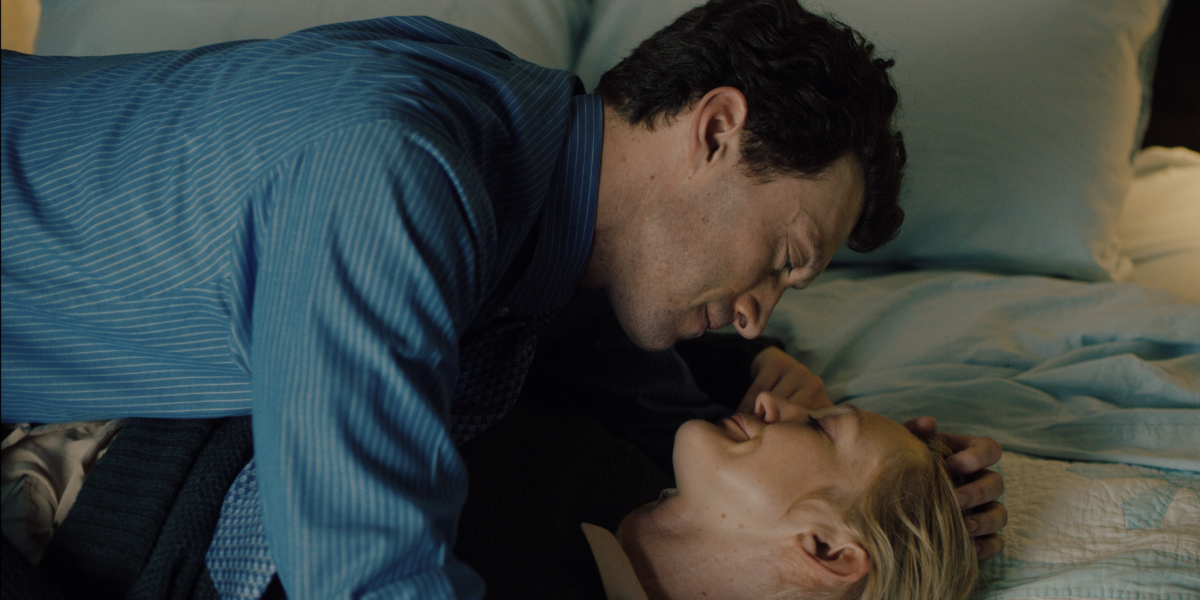Azura Skye is at the top of her game as a wife and mother having to deal with very personal and psychological issues that begin to impact on her life and her relationships with her family in the brand new dark noir THE SWERVE, which recently played during the London Frightfest ‘Digital Edition’ in August 2020.
Film And TV Now spoke with the actress as she reflected on her performance and other aspects of the production.
FILM AND TV NOW: Your performance is so powerful and reflects the desperation and mental state of a character looking for something deeper. What were the key things that attracted you to the original script? •
AZURA SKYE: When I first read the script, I immediately recognized Holly as the role of a lifetime. I say that completely seriously. I’ve been working in this business for a long time, and I’ve had the opportunity to play some fantastic roles, but nothing like this.
FTVN: The scenes with the family are very intense at times and reflect a classic sibling rivalry between you and your sister over something very trivial when she recalls a past incident. Did you create much of a backstory for your character before shooting began?
AS: I had a general backstory, but it was based entirely from information in the script. The scene with the family around the dinner table, really came together on the day, in the room, with the actors. Ashley Bell, who plays my sister, brought such a deliciously biting, and acidic, quality to that character, as does Deborah Hedwall who plays my mother, that I didn’t have to do anything in those scenes except sit there, and react their very special kind of venom.

FTVN: Tell us about your working relationship with your director and cast in THE SWERVE? •
AS: Everyone was very focused, and professional. We were all strangers when we started, and knew each other a little bit better by the end. As emotional as the story was, it was not a particularly heavy set. I think the only way to get through the drama of it all, was to keep the mood fairly light. Everyone had a job to do, and was focused on the task at hand.
FTVN: How long did the film take to shoot? •
AS: I don’t remember exactly, but I think it was 24 days? Something like that. Six-day weeks.
FTVN: Which were the most difficult scenes to shoot?
AS: I don’t recall any of the scenes being difficult, apart from the challenge of the heat, sometimes. •
FTVN: In terms of what the film represents and as a point of research, did you speak with psychologists and mental health charities before shooting and are there plans to show the film to anybody like that as a point of reference?
AS: I did not speak to any mental health professionals in regards to Holly, because the only way I could play her, was to start with myself. It was a deeply personal process. Also, for me, Holly’s journey was less about mental illness, and more about one’s own personal breaking point.
It’s about being pushed to that tenuous edge, where the slightest thing can tip the dominos, so to speak. The other emotional component for me, was this idea of silent suffering. We tend to keep our pain hidden when we go out into the world. We put on a brave face, and when someone asks how we’re doing, we smile and say, “Great!” But more often than not, we’re not doing great.
In fact, a lot of people are just barely holding it together – especially now. I’m not aware of any plans to show it to any specific audience, but I have spoken to people with whom the film really resonated with, in regards to mental illness, and it’s led to some very candid conversations.

FTVN: The London Frightfest screened it as part of its’ ‘Digital Edition’ in August 2020. What has the overall reaction been on the festival circuit?
AS: Unfortunately, I haven’t been able to attend any of the festivals personally, but from what I understand, the reaction has been quite positive. It’s not an easy film to watch, so I’m glad that audiences seem to be reacting favorably.
FTVN: What issues and themes have been close to your heart as a working actor and are there any that you would like to explore in future work? •
AS: As an actor, I’m less concerned with advancing any sort of an agenda, and more interested in the study of human behavior, and depicting that through storytelling in an honest, and compelling way. Hopefully I can generate some empathy with my work, and some compassion.
If I can create a platform for myself because of my work, then that gives me a voice to bring awareness to a wide array of human rights issues, which is the ultimate dream and the goal, but that’s a different facet of the work. For now, I implore people in the US to please vote November 3rd!!!

FTVN: You have worked extensively in television, notably in the series AMERICAN HORROR STORY. What are the key things that you have learned from that experience that have helped shape your evolution as an actress in a work like THE SWERVE?
AS: I’m not sure there’s really any comparison to be had. I suppose all the work I’ve done accumulates in some sort of evolution, but I find each experience to be very much it’s own. The Swerve was unlike anything I had done before, and I wouldn’t say that I drew on any past work, specifically. If anything, I find that real life tends to best prepare me for my work, more so than any job I’ve had.
FTVN: How has COVID-19 affected you as a professional actor and how are you coping at present?
AS: It’s affected me in the way that I haven’t worked all year, but at least I’m in good company on that one. It’s been challenging, obviously, but I find that it’s also simplified things, in a very humbling, and even beautiful way.
You realize you have your health, your family, a roof over your head, enough food to eat — and suddenly that seems like so much. You realize that’s so much more than so many people have. I think people are re-assessing what they actually need, and what makes them happy. •
FTVN: Finally, what are you most proud of about your performance in THE SWERVE? •
AS: I’m not really comfortable with self praise, but I will say that I am proud of my performance in this film, overall. Going into this project, I was more nervous about the physical work load, than I was about the performance itself. I was in every scene of the movie, so it was extremely labor intensive, and physically demanding.
I was worried about staying healthy, getting enough sleep, eating well. All those things that are imperative for me to be able to do my job well. The fact that I had the physical, and mental stamina to endure that pace, and intensity, was not exactly a point of pride, but it was definitely a relief, and I felt very accomplished by the end.





























